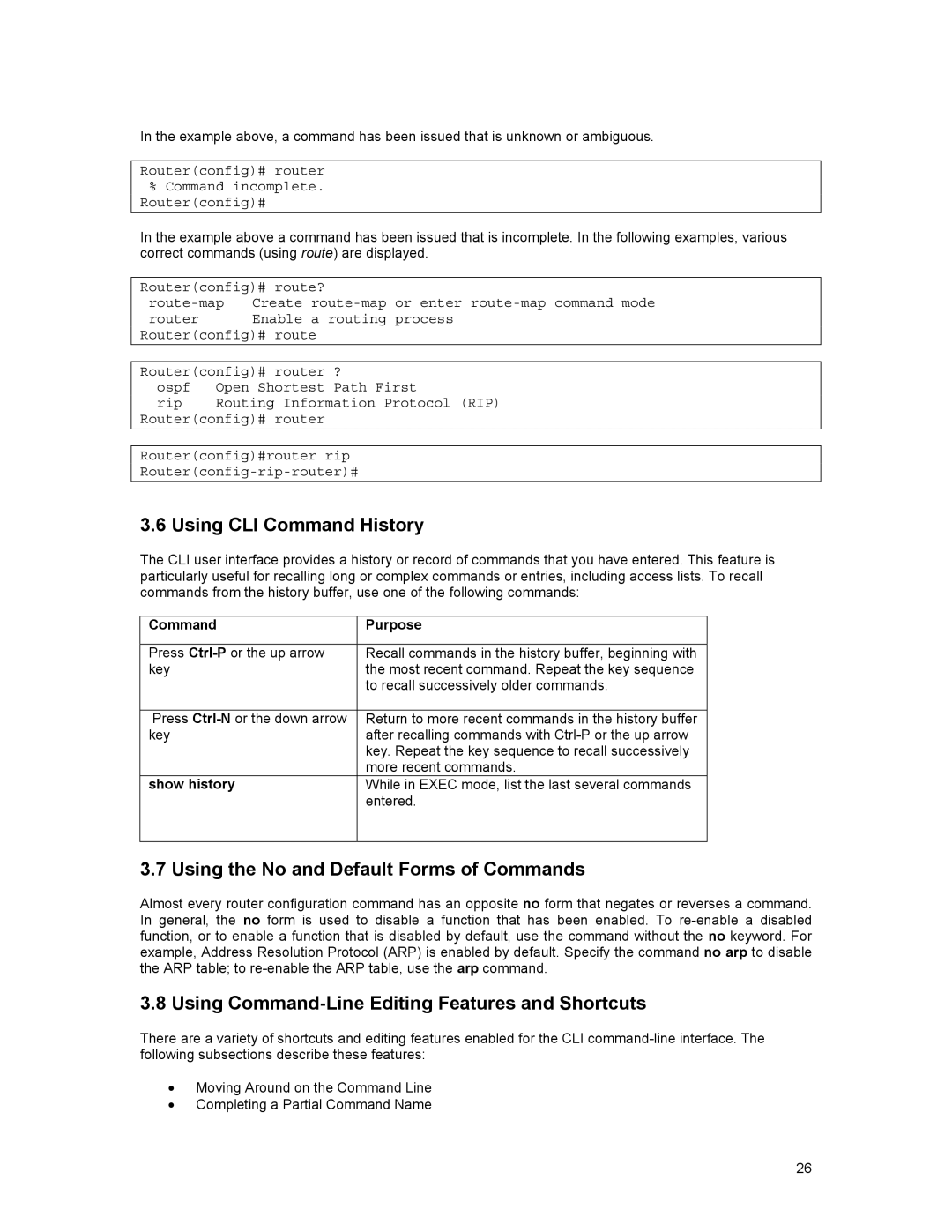
In the example above, a command has been issued that is unknown or ambiguous.
Router(config)# router
%Command incomplete. Router(config)#
In the example above a command has been issued that is incomplete. In the following examples, various correct commands (using route) are displayed.
Router(config)# route?
Create | ||
router |
| Enable a routing process |
Router(config)# route | ||
| ||
| ||
Router(config)# router ? | ||
ospf | Open Shortest Path First | |
rip | Routing Information Protocol (RIP) | |
Router(config)# router
Router(config)#router rip
3.6 Using CLI Command History
The CLI user interface provides a history or record of commands that you have entered. This feature is particularly useful for recalling long or complex commands or entries, including access lists. To recall commands from the history buffer, use one of the following commands:
Command | Purpose |
|
|
Press | Recall commands in the history buffer, beginning with |
key | the most recent command. Repeat the key sequence |
| to recall successively older commands. |
|
|
Press | Return to more recent commands in the history buffer |
key | after recalling commands with |
| key. Repeat the key sequence to recall successively |
| more recent commands. |
show history | While in EXEC mode, list the last several commands |
| entered. |
|
|
3.7 Using the No and Default Forms of Commands
Almost every router configuration command has an opposite no form that negates or reverses a command. In general, the no form is used to disable a function that has been enabled. To
3.8 Using Command-Line Editing Features and Shortcuts
There are a variety of shortcuts and editing features enabled for the CLI
•Moving Around on the Command Line
•Completing a Partial Command Name
26
